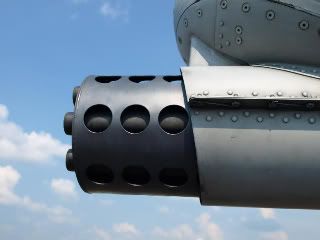Here's something interesting.
Antiwar Trio Says Iraq's Future Is What Counts
Leaders Try to Repair Relations With Allies
By Sharon LaFraniere
Washington Post Foreign Service
Saturday, April 12, 2003; Page A29
ST. PETERSBURG, Russia, April 11 -- The leaders of Russia, France and Germany today attempted to patch up deep differences with the United States and Britain over Iraq, saying after a meeting here that what mattered now was addressing the humanitarian crisis and the apparent anarchy besetting the country.
Conferring just two days after the fall of Baghdad, the three heads of state generally avoided restating their opposition to the war. But they stood by their position that the United Nations, not U.S. and British forces, should oversee Iraq's reconstruction.
French President Jacques Chirac and German Chancellor Gerhard Schroeder told reporters that they wanted to end the division of the world's major countries into pro- and antiwar camps. "Even in bad things we can find good, and we are glad the dictatorship fell," said Chirac, who was the fiercest opponent of military action against the deposed Iraqi president, Saddam Hussein.
Schroeder said, "This military victory was aimed at helping the entire Iraqi people. I do not want to speak about the past."
Still, tensions over the war were evident, especially in remarks by Russian President Vladimir Putin. "The only goal . . . was and is the disarmament of Iraq and the attempt to find weapons of mass destruction," Putin said at a news conference tonight at the exclusive Grand Hotel. "As we know, nothing was found, and even at the last moment of their struggle for survival, the regime did not use them. . . . What does this mean? What was the military action for?"
Putin displayed some pique in his response to a Bush administration suggestion that Russia, France and Germany write off some or all of the debts Iraq owes them. Deputy Defense Secretary Paul Wolfowitz, said Thursday that the loans had helped Hussein build palaces and maintain instruments of repression.
Putin implied that creditors were being asked to forgo repayment to free up money for postwar reconstruction in Iraq. "Somebody was shooting a little, looting a little, and now somebody has to pay for it," he said. "It always happens like this."
Still, Putin said he was prepared to renegotiate the $8 billion owed to Russia, a step that would give Iraq some financial breathing room. Schroeder and Chirac said the matter should be handled by the Paris Club, a group of creditor nations that oversees debt restructurings.
Both Germany and France so far have responded cautiously to U.S. suggestions on Thursday that allies contribute money and peacekeeping troops for postwar Iraq. Chirac said tonight that France wants "to ask our friends to accept our help in providing humanitarian aid." But he said security would be the responsibility of the U.S. and British forces.
Schroeder said Germany would contribute funds to Iraq but only through the United Nations. He expressed dismay at the widespread looting underway in Iraqi cities, saying, "This has to be stopped."
All three leaders reiterated their stance that U.N. oversight would give Iraq's reconstruction much-needed international legitimacy, citing Afghanistan as an example. "The longer we delay the solution of the problem in the U.N., the more it will resemble a colonial situation," Putin said.
Bush has said the U.N. should play a "vital" role in post-war Iraq but has not defined it.
Sergei Prikhodko, a top foreign policy adviser to Putin, said the three leaders had gathered to find a "nonconfrontational" way to cooperate with the United States and Britain over Iraq. Putin and Schroeder meet annually at this time of year in St. Petersburg; Chirac decided to come at the last minute.
French and German officials said they want to take time to reach an informal broad agreement with the United States and Britain over the U.N.'s role, so as to avoid the kind of divisive public fight that took place in the U.N. Security Council before the war.
The three leaders said that they also discussed other trouble spots, including North Korea. A top official with the Russian Foreign Ministry said today that Russia may rethink its opposition to international sanctions against North Korea if it appears the government there is contemplating the production of nuclear weapons.
Correspondent Robert J. McCartney in Paris contributed to this reports.
© 2003 The Washington Post Company
http://www.washingtonpost.com/ac2/wp-dy ... -2003Apr11¬Found=true
Russia seems to have their own war on terrorism.
http://www.washingtonpost.com/wp-dyn/ar ... Apr25.html
http://www.washingtonpost.com/ac2/wp-dy ... Found=true
http://www.washingtonpost.com/wp-dyn/ar ... Apr17.html
http://www.moscowtimes.ru/doc/HotNews.html
Edited by - everybee on May 01 2003 7:23 PM





